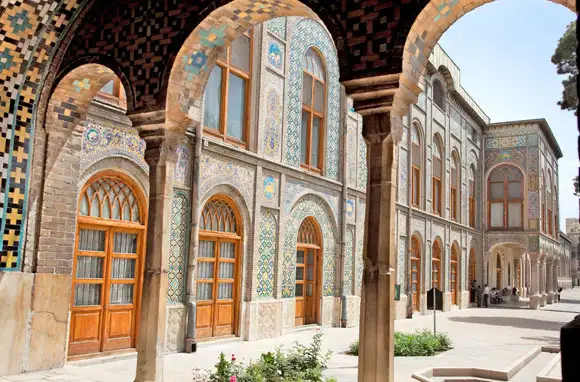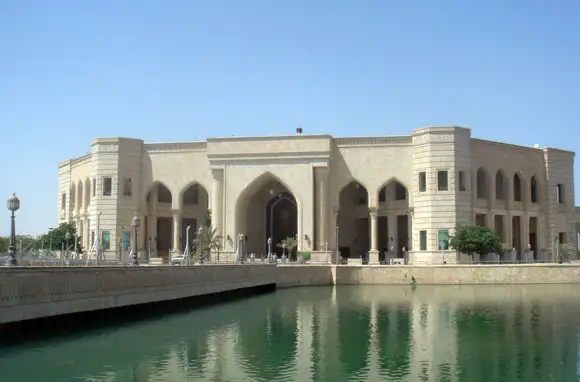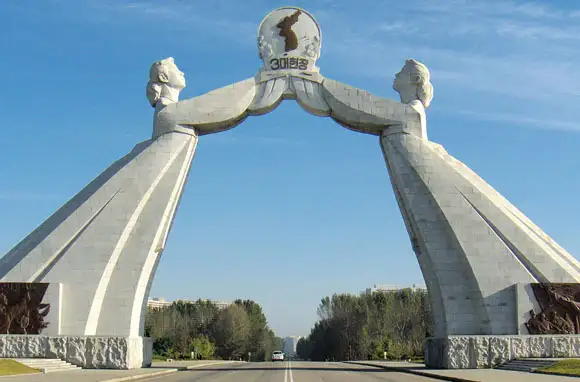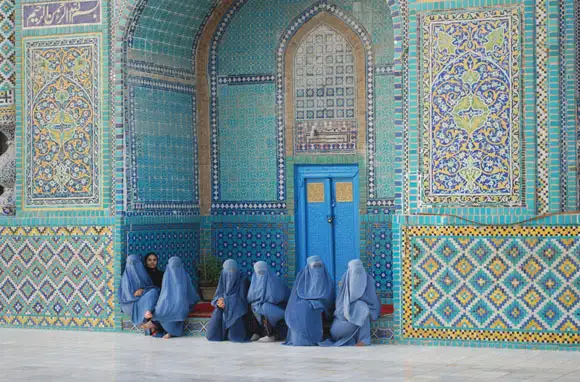
There are certain countries in this world that inspire thoughts of trepidation rather than tourist excitement. But don’t cross them off your travel bucket list just yet, especially if you are an experienced traveler. Read on as we tell you why you should consider visiting countries like Iran and Myanmar and how to do it.
Of course, before you go, check with the U.S. Department of State for the most up-to-date travel information and warnings.
Image Gallery

Myanmar (Burma)
Why it's Taboo: Steve Harbert, from Mountain Kingdoms tour operator, explains, saying "Under the long-term rule of the military, Myanmar [also called Burma] was guilty of serial human-rights abuses, including displacement of ethnic villagers and forced labor. These actions led to the introduction of economic sanctions by both the U.S. and the E.U." The National League for Democracy (NDL) party called for a tourism boycott in 1995 that was widely upheld until it recently revised its stance and encouraged people to visit responsibly. (Visit the Burma Campaign UK for more information on the political situation.)
Why it's Still Worth Going: From 2,500-year-old golden temples to the world's longest teak bridge, Myanmar offers endless interesting sightseeing opportunities. In an area about the size of Texas, there's everything from grasslands to jungles bordered by the Himalaya mountain range.
How to Visit: Do your research and visit with a tourism company that is committed to ethical travel to the region. Mountain Kingdoms, for example, says that they work to "offer trips to the country in a way that minimizes benefit to the ruling regime and maximizes benefit to local people and companies." Avoid visiting attractions run by the military regime or its supporters (such as Kandawgyi Gardens), and support private companies rather than the services owned by the regimeâs associates.

Myanmar (Burma)
Why it's Taboo: Steve Harbert, from Mountain Kingdoms tour operator, explains, saying "Under the long-term rule of the military, Myanmar [also called Burma] was guilty of serial human-rights abuses, including displacement of ethnic villagers and forced labor. These actions led to the introduction of economic sanctions by both the U.S. and the E.U." The National League for Democracy (NDL) party called for a tourism boycott in 1995 that was widely upheld until it recently revised its stance and encouraged people to visit responsibly. (Visit the Burma Campaign UK for more information on the political situation.)
Why it's Still Worth Going: From 2,500-year-old golden temples to the world's longest teak bridge, Myanmar offers endless interesting sightseeing opportunities. In an area about the size of Texas, there's everything from grasslands to jungles bordered by the Himalaya mountain range.
How to Visit: Do your research and visit with a tourism company that is committed to ethical travel to the region. Mountain Kingdoms, for example, says that they work to "offer trips to the country in a way that minimizes benefit to the ruling regime and maximizes benefit to local people and companies." Avoid visiting attractions run by the military regime or its supporters (such as Kandawgyi Gardens), and support private companies rather than the services owned by the regimeâs associates.

Cuba
Why it's Taboo: When Cuba became a single-party state ruled by the Communist Party, the United States adopted economic sanctions against the country and prohibited American citizens from visiting the nation and supporting its economy. However, the relationship between the two countries is beginning to thaw, and President Obama recently loosened travel restrictions to Cuba.
Why it's Still Worth Going: Cuba is already a major vacation destination for most other Western nations. Travelers flock to the lively city of Havana, the many white-sand beaches, and the natural attractions like the Sierra Maestra mountain range. The country's hospitality, music, food, and, of course, cigars are world-famous.
How to Visit: Charter flights now operate between Havana and several U.S. gateways, including Miami, Ft. Lauderdale, and Atlanta. Americans must comply with federal laws regarding visiting Cuba and obtain a license in order to legally travel to Cuba and spend money. Family travel, educational travel, and people-to-people tour-group travel are now permitted. (Visit the State Department's website for full license information.) Americans who attempt to travel to Cuba without a license can face heavy fines and criminal prosecution upon return to the United States.
Update: In December 2014, the White House lifted even more restrictions for travelers. Twelve types of general licenses are now available (click here to read more about them), and American tourists can now use use their U.S. credit and debit cards in Cuba. Also, legal travelers to the country will now be allowed to bring back up to $400 worth of goods to America (with a maximum of $100 worth of tobacco products and alcohol combined.)

Iran
Why it's Taboo: Helmed by controversial president Mahmoud Ahmadinejad, Iran has a tense relationship with much of the Western world. With a legal system based on Islamic sharia law, this country is definitely a risk for tourists more used to a secular legal system. Just last year, American hikers who accidentally crossed into Iran were imprisoned for almost two years for allegedly committing espionage.
Why it's Still Worth Going: The archaeology and history of the Persian Empire that you'll find in Iran is unrivaled anywhere else in the world. Sights like Persepolis (the ceremonial capital of the Persian Empire), ancient temples and tombs, and breathtaking mosques, all undiscovered by other tourists, make Iran worth the trip. Mary Dell Lucas, founding director of California-based Far Horizons Archaeological and Cultural Trips, says, "I can't say enough positive things about Iran. As the owner of an international tour company, I've traveled all over the world, and without question, Iran is one of the most fascinating countries in this world. There is a huge difference between the politicians and the people … just as in [the U.S.] So much of what is in the news doesn't apply at all with the reality of being in this country. It's one of the friendliest places that I've been. We've been taking groups there since 1999. I would urge people to visit this country."
How to Visit: Obtain a visa by applying through the Iranian Interests Section of the Embassy of Pakistan. Or, plan on visiting Kish Island, the only area of Iran where U.S. citizens do not need a visa to enter if they come through Dubai.

Iraq
Why it's Taboo: It hasn't been that long since the U.S. formally ended the war with Iraq, and the country is still unstable.
Why it's Still Worth Going: What better way to understand the current conflicts in Iraq than by seeing the country firsthand? Visit ancient Sumerian sites, former palaces of Saddam Hussein, and places of Biblical importance, like Babylon.
How to Visit: Geoff Hann, who runs tours for Hinterland Travel, was in Iraq this month and says, "Individual tourism is still not really possible. So we operate groups, and these are accompanied by security personnel and in some places we have police escorts. Most hotels will have security personnel attached." Hann says that travelers should use common sense and stay safe by "avoiding certain places which have ethnic disputes, respecting the religion by dressing appropriately by Iraqi standards (particularly females), and avoiding undue camera flashing." The tour groups will also help you obtain an Iraq visa.

North Korea
Why it's Taboo: The militaristic single-party state is highly insular and largely closed off to the rest of the world. If you attempt to enter North Korea without the proper visa and passport, you risk arrest, long-term imprisonment, heavy fines, and forced labor. The United States does not maintain diplomatic relations with the country, and thus there is no U.S. embassy in North Korea. However, the Swedish Embassy in Pyongyang is available to help U.S. citizens traveling in the country. Tourists in the country must stay with government minders at all times, and there are strict rules about what they can photograph and see.
Why it's Still Worth Going: Nick Bonner of Koryo Group (which has been running North Korea tours for almost 20 years) says, "By visiting North Korea and interacting as much as you can, you have a positive impact on engagement. You are bringing civilians into contact with Westerners and providing job opportunities."
How to Visit: Apply for a visa through the Embassy of the Democratic People's Republic of Korea in Beijing. The best way to get to North Korea is via train from Beijing; however, American citizens are not allowed to leave North Korea on the train and must take an exit flight. Be aware that the State Department warns, "If you travel unescorted inside North Korea without explicit official authorization, North Korean security personnel may view your actions as espionage. Security personnel may also view any unauthorized attempt you make to talk to a North Korean citizen as espionage. North Korean authorities may fine or arrest you for unauthorized currency transactions, for taking unauthorized photographs, or for shopping at stores not designated for foreigners. It is a criminal act in North Korea to show disrespect to the country's current and former leaders, [Kim Jong-un], Kim Jong-il, and Kim Il-sung. Hotel rooms, telephones, and fax machines may be monitored, and personal possessions in hotel rooms may be searched. … Persons violating the laws of North Korea, even unknowingly, may be expelled, arrested, or imprisoned."
Update: There is currently a temporary suspension of tours to North Korea (a response by the government to the Ebola outbreak) but tourists are expected to be allowed back in at the beginning of 2015.

Libya
Why it's Taboo: Last year, Libya underwent a popular uprising against Moammar Gadhafi's governance. The ensuing civil war caused massive instability and unrest throughout the country. Tourist visas were suspended during this time and are only recently being reissued. However, as of September 2011, the U.S. Embassy in Libya has resumed operations.
Why it's Still Worth Going: Jeff Wilson of Libya Travel & Tours currently lives in Tripoli and says, "Libya is a 'virgin' destination that has been long overlooked because of the rule of the past regime. Unlike the other North African countries like Egypt, Tunisia, and Morocco, Libya has never developed its tourism potential. Libya has all the same components of these other tourism countries—like the Sahara Desert, the beach, and historical sites—but has less than 100,000 tourists per year. Libya has five UNESCO World Heritage sites: Leptis Magna, Sabratha, Cyrene, Ghadames, and the Rock-Art Sites of the Tadrart Acacus. (Leptis Magna alone is one of the top Roman ruins in the world.) The Sahara Desert of Libya is by far better than in Morocco and Tunisia, offering amazing desert oases and lakes. For those travelers interested in archaeology or history, Libya has so many jewels waiting to be explored."
How to Visit: There is currently no independent tourist travel allowed in Libya. To visit, you'll need to go through a licensed tour agency, which will be able to obtain a tourist visa for you and will also book your hotels, transportation, guides, and security. Be advised that Libya does not allow people with Israeli entry or exit stamps in their passports to enter the country.

Afghanistan
Why it's Taboo: The security situation is still unstable in Afghanistan, with car bombings, kidnappings, and other violence presenting a real risk to visitors.
Why it's Still Worth Going: Jonny Bealby and his Afghan team at tour group Wild Frontiers say Afghanistan is "one of the most fascinating, beautiful, and, at least from a tourist perspective, least visited countries in the world. From the stunning architecture in Herat and Mazar-i-Sharif and the famous mountain caves of Bamiyan and the Panjshir Valley to the epic limestone lakes of Band-i-Amir and the high passes of the Hindu Kush mountain range, the country has everything modern adventure tourism could ask for. Add to that some of the most hospitable and welcoming people anywhere, and you have the makings of a great traveler location. Afghanistan is undergoing tremendous change at the moment, but for the vast majority of Afghans, daily life continues in much the same vein as it has for centuries." Regarding safety, Bealby says, "Whilst there are some regions that are definitely off-limits, the majority of the country is peaceful and attracts a small, but growing, number of visitors. Wild Frontiers runs the majority of its trips to the Wakhan Corridor—in the remote northeast of the country—which is a pristine land well away from the dangers in the rest of the country."
How to Visit: It's perfectly legal to visit Afghanistan from the U.S. You'll need a visa, which you can get from the Embassy of Afghanistan in Washington, D.C. There are no direct flights from the U.S. to Afghanistan, so you'll have to first fly to countries offering service, such as Germany or Turkey.

Chernobyl
Why it's Taboo: Site of the world's worst nuclear disaster, Chernobyl in Pripyat, Ukraine, remains a disaster zone 26 years later. Countless people were forced to abandon their homes, and many also suffered extreme health consequences due to the fallout. The area is still considered highly radioactive and will be unsafe to inhabit for another 20,000 years.
Why it's Still Worth Going: The ghost town is still relatively untouched from the day of the disaster. An abandoned amusement park, empty schoolrooms, and ruined houses are an eerie and sobering reminder and a memorial to the disaster's victims. According to Sergei Ivanchuk of SoloEast Travel, "It's not a pleasure trip but it's not a morbid one either. If you like photography, history, or environmental studies or played Call of Duty or watched Chernobyl Diaries, you might consider taking a tour."
How to Visit: You must book a tour, and you need to apply at least 11 days ahead of your visit for a permit. To avoid contamination, you will have to adhere to a dress code, avoid touching any plants or structures, and keep your camera from touching the ground.

Saudi Arabia
Why it's Taboo: Strict conduct rules govern visitors and locals alike. For example, women visitors must be met by a sponsor upon arrival into the country, can be arrested by the mutawain (religious police) for improper dress, and are not allowed to drive. Tourists are required to abide by local laws, as violations (including homosexual activity and adultery) may be punished with lashings or the death penalty.
Why it's Still Worth Going: Saudi Arabia was considered closed to outsiders for centuries, enshrouding the country with a sense of the forbidden and mythical. Once inside, you can see the Mada'in Saleh (an elaborate ancient settlement), The Empty Quarter's stunning sand dunes, and the pristine Red Sea reefs.
How to Visit: You will need a sponsor in order to get a visa, and visas can take several months to process. Obtain a business visa or try for one of the five-year multiple-entry visas issued by the Saudi Embassy to American visitors and students. Be aware that having an Israeli stamp in your passport may get your visa application denied.

Antarctica
Why it's Taboo: Once the last unspoiled place on Earth, Antarctica has been attracting record numbers of tourists in recent years. Scientists worry that tourists are accidentally importing nonnative invasive plant and insect species to the continent. Trash and pollution from ships, the potential for accidents and oil spills, and tourists causing erosion and other damage are all environmental concerns for the Antarctic tourist industry.
Why it's Still Worth Going: It's the only place on earth with no permanent inhabitants. The natural scenery is unlike anywhere else in the world, with icebergs, penguins, and seemingly endless pristine ocean. According to Courtenay Oswin, marketing coordinator for Quark Expeditions (operator of the first carbon-neutral voyage to Antarctica), "We firmly believe that tourism is and should continue to be a driving force in Antarctic conservation. Firsthand travel experiences in Antarctica foster education and a better understanding of the destination and the need for responsible tourism."
How to Visit: Thoroughly research tour companies' environmental policies before choosing a provider for your trip. "Shipborne tourism does provide a legitimate means, within the provisions of the Antarctic Treaty System and the Protocol on Environmental Protection to the Antarctic Treaty, to meet the tourism demand without the need for permanent infrastructure and with limited residence time," says Oswin. Ships must apply for permits to visit Antarctica and undergo environmental assessments to ensure that they are following international regulations for safety and treatment of waste and ballast water.
You Might Also Like:
We hand-pick everything we recommend and select items through testing and reviews. Some products are sent to us free of charge with no incentive to offer a favorable review. We offer our unbiased opinions and do not accept compensation to review products. All items are in stock and prices are accurate at the time of publication. If you buy something through our links, we may earn a commission.
Top Fares From Knoxville, TN
Today's Top Travel Deals
Brought to you by ShermansTravel
Shop and Save with Country Inns...
Patricia Magaña
 Hotel & Lodging Deals
Hotel & Lodging Deals
$229 -- Chicago: Discounted Rates and...
Francesca Miele
 Hotel & Lodging Deals
$229+
Hotel & Lodging Deals
$229+
$188 -- Honolulu: Save on Oceanview...
Abigail Lamay
 Hotel & Lodging Deals
$188+
Hotel & Lodging Deals
$188+



